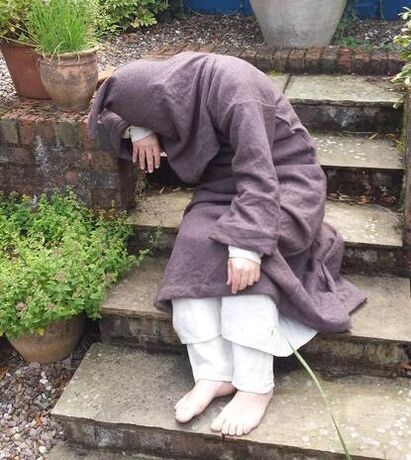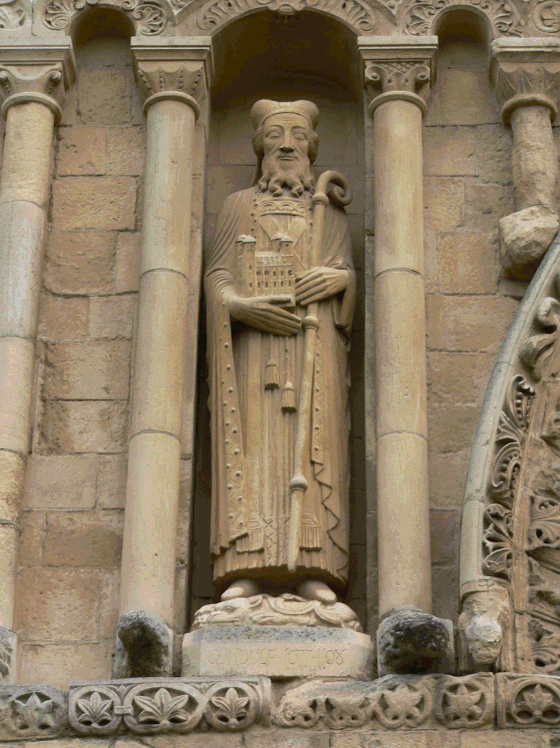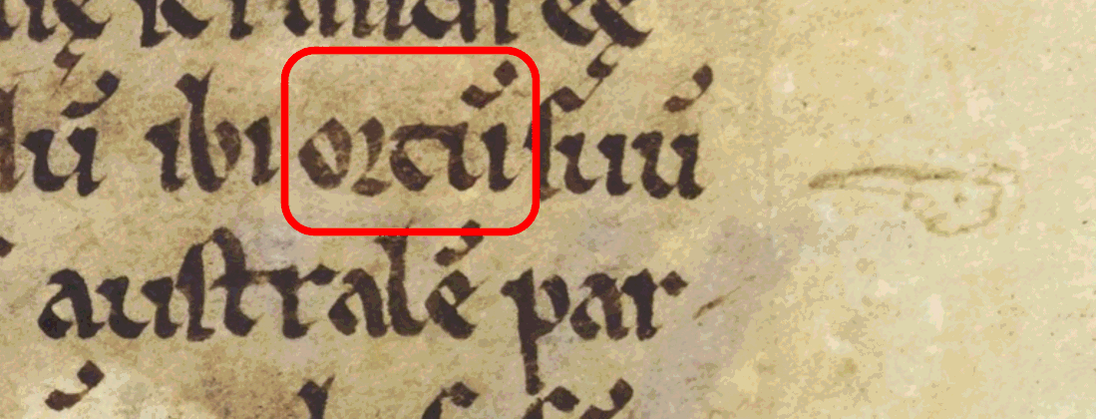|
The Anglo-Saxon Monk announces Dr Monk's latest translations from Textus Roffensis Blessed readers, I know most of you appreciate how hard we monks work, especially Anglo-Saxon monks. But even my post-Conquest Benedictine brethren deserve some recognition for their spiritual endeavours. After all, if it were not for the finger-wearing scribing of the anonymous monk of St Andrew's Priory, Rochester, you wouldn't be reading all the wonderful texts from Textus Roffensis today. With this in mind, beloved ones, I take great pleasure in announcing the release of the latest texts to be translated from that wonderful codex, all of which relate in some way to the lives of the industrious brothers of Rochester at the end of the eleventh century. The four texts are from the cartulary section (charters and records) of Textus Roffensis and they concern life in the priory, and beyond, during the bishopric of Gundulf (think spiritual wizard, if you must). What a good man he was, both bishop and prior at Rochester (between 1077-1108), always on the look-out for his fellow monks, ready to fight for their material as well as spiritual needs, as you will discover. Please find below my overview of the four texts. Just click on the buttons to go to Dr Monk's translations, published by Rochester Cathedral Research Guild [update: now Rochester Cathedral]. Update 16 Sept 2022. My older translations of texts from Textus Roffensis for Rochester Cathedral have now been reformatted, so they are no longer available as PDFs but are in webpage format. This means they now have new web addresses. Please bear with me as I correct the links. Please check out the Rochester Cathedral Textus Roffensis page for both my older and newer translations. 1. Bishop Gundulf affirms the release of land to William II in exchange for land originally granted to St Andrew's priory as a garden for the monks The first text is a short one. It summarises the struggle Gundulf had getting a certain three acres of land confirmed as the monks' garden: a bishop grants it, a king takes it away, Gundulf has to swap it for some other land. Terrible really for our poor monks. All they wanted was to grow a few vegetables, for Heaven's sake... and probably a few grapes too (you need to read note 4 in the translation to get the allusion to the monks' vineyard). 2. Bishop Gundulf confirms a grant of land by Gilbert the priest in exchange for Gilbert entering the monastic life. 3. The account of Gilbert entering the monastic life and Gundulf's subsequent dealings with his relatives over land tenure. The second and third texts need to be read together. They relate the story of Gilbert the priest who wanted to become a monk. And how do you do that, you ask. Well you hand over a chunk of land to the brothers, who will be happy to oblige. But that is only half the story, to be honest. You see, Gilbert had a son and another relative who still managed some other land that Gilbert had previously had as tenant of the king, William Rufus. But Ralf and Osmund, as they were known, got into a bit of bother over this land because basically the king was a big meanie as a land-lord, and also as a tax collector. So, as you will find out, they ask good old Gundulf to come to their rescue. 4. The dispute between bishop Gundulf and Pichot, sheriff of Cambridge Now the final of the four new translations is the best of the bunch, particularly if you like a bit of medieval scandal. And I know you do, blessed ones. In this tale of greed and chicanery we have our hero Gundulf and his sidekick monk named Grim (yes, that really was his name); the highly disreputable sheriff of Cambridge, Pichot (loud boos, please); and a dozen noblemen who are bullied into lying under oath about land that belonged to the good monks at St Andrew's Priory. Now, I will not spoil it all by telling you the outcome, but I do have to say that I was initially a tad disappointed that no one got their fingers burnt. I mean literally, blessed ones, for there is talk of trial by hot iron in this text! But in the end I had my admittedly rather harsh perspective readjusted by, of all people, the other Monk of this website. I yielded to him, just this once, as he is the translator. Well, in a nutshell, he told me that I should, as a man of God, be contented that justice was arrived at by less painful means. I suppose he has a point.
0 Comments
Your comment will be posted after it is approved.
Leave a Reply. |
Details
|



